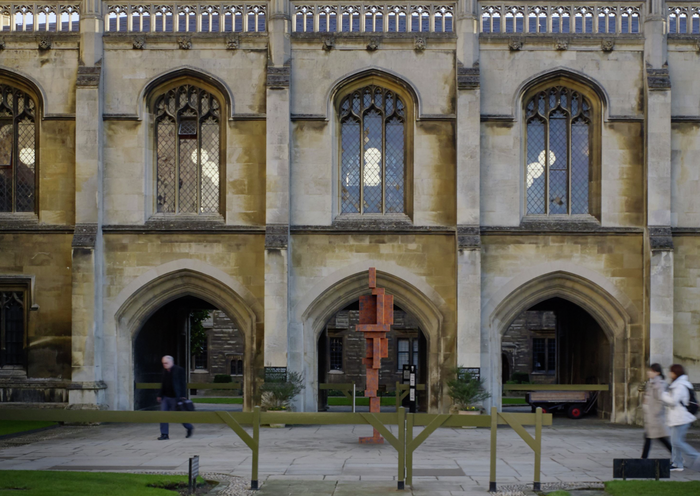‘We shouldn’t be whining about content warnings that do more good than harm’
Content warnings and book bannings — where do we draw the line between protection and censorship?

Universities are mollycoddling their sensitive student snowflakes once again. Or at least that’s what the tabloids are claiming.
Last month, an investigation by The Times revealed that, on top of the 1081 examples of trigger warnings on university English courses, some universities have gone as far as to “ban” books altogether. Despite the alarm bells of free speech obstruction from the press, these supposedly “blacklisted” books are still available in the universities’ libraries; students just aren’t encouraged to read them – which is concerning in and of itself.
Most universities have simply introduced an opt-out system on their reading lists. Despite bemoaning boomers, trigger warnings have never harmed anybody. In fact, quite the opposite (if they’re doing their job right).
As Cambridge English faculty member, Dr Scott Annett, told Varsity “readers should always have the opportunity to be forewarned about the content of a text if that text is likely to address difficult material.” He also added “I don’t think content warnings negatively impact on the experience of readers and I also don’t think that there is anything to be gained by students being surprised by the presence of difficult material.” He believes “if content warnings help some individuals then they are surely a positive move.”
Talking to Cambridge English students about the debate, some didn’t seem concerned about the changes but were instead frustrated with the tabloids’s portrayal of the affair. One student claimed that “it’s realistic to assume that course leaders will have to select which texts remain on the must-read pile.” They believe “what’s being missed is that this is more about practicality than censorship.”
Others, however, see these changes as a potentially much more concerning trend, with one student commenting that the “censorship of certain texts will inevitably be a censorship of certain aspects of life.” They added that “education at its core is about learning about all aspects of life, including those darker and less favourable elements.”
The choice to ban books that educate people about minority experiences not only censors the literature but censors history. The whole point of education is to educate, and if you’re only going to give students a watered-down version of history, they’re not going to learn anything of value. Of course, it’s important to protect students but banning books is a step in a scary direction.
So, no, we shouldn’t be whining about content warnings that do more good than harm, and at the end of the day, these opt-out schemes primarily have protection rather than censorship at their core. What, however, remains worrying is the desire to remove challenging books from university reading lists. Because if we don’t want our literary education to challenge us, why bother with it at all?
 Comment / Cambridge’s tourism risks commodifying students18 April 2025
Comment / Cambridge’s tourism risks commodifying students18 April 2025 News / Cambridge student numbers fall amid nationwide decline14 April 2025
News / Cambridge student numbers fall amid nationwide decline14 April 2025 News / Greenwich House occupiers miss deadline to respond to University legal action15 April 2025
News / Greenwich House occupiers miss deadline to respond to University legal action15 April 2025 Comment / The Cambridge workload prioritises quantity over quality 16 April 2025
Comment / The Cambridge workload prioritises quantity over quality 16 April 2025 News / Varsity ChatGPT survey17 April 2025
News / Varsity ChatGPT survey17 April 2025





